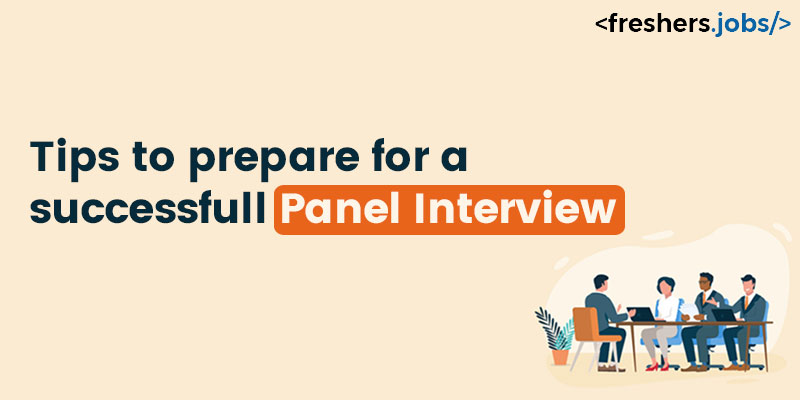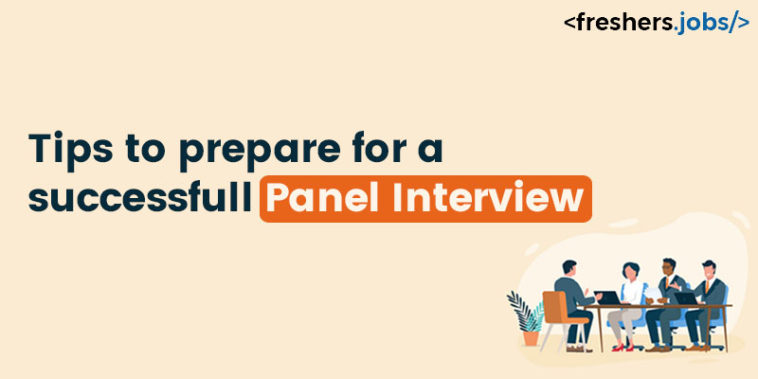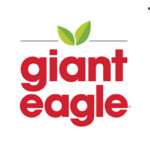A panel interview is an opportunity for a candidate to showcase their skills, experiences, and personality to a group of interviewers. As a candidate, it is essential to be well-prepared and confident to make a positive impression on the panel.

You will likely be asked questions about your background, skills, and experiences during a panel interview. It is very important to take the time to research the company and its values beforehand so that you can tailor your responses to their specific needs.
Knowing who will be on the panel and their roles within the company is also essential for freshers jobs interviews. This can help you understand what they are looking for in a candidate and how you can best meet their expectations.
During the interview, it is essential to be clear and concise in your responses. Take the time to listen carefully to each question and answer it thoughtfully. Feel free to ask for clarification if you need help understanding a question.
Overall, a panel interview can be intimidating. Still, with the proper preparation tips and mindset, it can also be an exciting opportunity to showcase your skills and land your dream job. Remember to stay calm, be confident, and, most importantly, be yourself.
In this blog, we give you tips to help you do well in a panel interview and how to prepare for an interview.
Let us know What a Panel Interview is
A panel interview is one of the job interviews in which a candidate is interviewed by multiple interviewers simultaneously, usually three to five people. The interview panel typically comprises individuals with different organisational roles, such as HR professionals, hiring managers, team leaders, and potential colleagues.
What is panel interview? Panel interviews are designed to evaluate a candidate’s qualifications, experience, and fit for the position and the company. They may involve a combination of behavioural, situational, and job-specific questions and discussions about the candidate’s skills, achievements, and career aspirations.
Let us see some tips to prepare for a successful panel interview
A panel interview is when a candidate is interviewed by multiple interviewers simultaneously, usually three to five people. The interview panel typically consists of individuals with different roles, such as HR professionals, hiring managers, team leaders, and potential colleagues.
Panel interviews are designed to evaluate a candidate’s qualifications, experience, and fit for the position and the company. They may involve a combination of behavioural, situational, and job-specific questions and discussions about the candidate’s skills, achievements, and career aspirations.
As freshers, If you have a wide range of skills, you can start applying for jobs from freshers jobs in Pune.
Tips for a successfull panel interview
You can feel more confident at your following panel interview by following these 12 tips:
Do research on the interviewers
Find out which members of the staff will be interviewing you. Then, find out more about these people and what they do at the company to help you make links and come up with questions. If you know what they do, you can also guess what questions they might ask. Remember the important information about your interviews, like their names and what they do for a living. Knowing What is a group interview will help you when you meet each panellist. You should address them appropriately to show that you are professional and ready. If you learned something interesting about the panellists, like that you both like the same things, you could talk about that to make small talk or get to know them.
Study possible questions
When you know who will question you, you can think about what questions they might ask. Most of the time, these questions are about their job at the company and how you would work with them. For example, if one of the panellists is in charge of marketing, you can expect to be asked how your job would help the company’s marketing efforts. Or, they might ask if you have ever worked with marketing pros.
What is a panel interview? During panel interviews, you may also be asked social or behavioural questions to see how you would handle the job’s duties and fit in with the organisation. Often, these questions ask how you have taken specific scenarios at work in the past, which you can use to show how you would do in the new position. Here are some examples of possible interview questions:
- Tell me something about you.
- What would your old coworkers or bosses say about you?
- Tell me about a work mistake you made. What lessons did you learn from that?
- In five years, where do you see yourself?
Get used to your answers
List questions that could be asked, and then start writing and practising your answers. Always Review your resume and the job description to ensure you know what essential skills and accomplishments you want to discuss during the interview. Ensure your answers are relevant to the job and show how your skills will help the team reach its goals for the panel interview.
Practise can help you feel more comfortable talking about yourself, whether alone or in front of someone else. When you plan out your answers ahead of time, you can also look more sure of yourself during the interview. If you practise with someone else, ask them what they think of how you did. Then try to figure out how to make any changes that need to be made.
Get questions ready for the interviews
How to prepare for an interview? Your interviewers will set aside time to enquire you if you have questions for them. Some questions will come up just because of what you’re talking about but try to think of some questions beforehand. Makeup questions about the company, the job, or the interviewers that show you did your study and took the time to prepare for interview.
You can also consider what you value most in a job and base your questions on that. Your questions allow you to learn more about the job and decide if it fits your wants. Your interest in the job could change depending on how you answer these questions. For example, if you want a job that will help you advance in your career, you might ask if the company gives training or other ways for employees to improve their skills.
Bring the right things
Bring enough copies of your resume, business card, portfolio, and other relevant papers if your panel interview is in person. These things can give people more details about you or your work. If there are enough materials, no one has to share documents and can take them home to look at them again.
During your interview, take notes. Bring a pen and a notepad to your interview, or have them nearby if you are doing it remotely. Ask the interviewers at the start of the meeting if you can take notes. Try to spend most of your time talking to the people interviewing you. You should know what is a group interview and pay more attention if you look at your notes less often.
Get to know the people who are interviewing you
Don’t treat your interview like a question-and-answer session for a panel interveiw. Talk with the person you are meeting. To do this, you can get to know the interviewers and connect with them. Your answers should also consider what each person is worried about or wants. Referring to interviewers directly is another good way to get to know them. Use their names or something they said earlier in the chat when you answer their questions.
Pay proper attention to each interviewer
Some interviewers may be easier to get along with than others during the interview. This relationship can be a good sign, showing that you could work well together. But pay attention to the other panellists and talk to them. In most cases, you may need to change how you speak to meet how they do. Or, if one panellist is more outgoing than the others, try to shift the focus to the quieter reporters to show you want to hear what they say.
Keep your body language upbeat
Interviewers like candidates who answer questions with ease. But it’s about more than just what you say; you can show it through your body language and other silent cues. Sit up straight and keep your attention on the interviewers at all times.
You can also show interest in the speaker by making eye contact and smiling. These signs make you seem friendlier and easier to talk to, which makes people want to work with you. Freshers can go through the Interview tips for freshers.
Give yourself time to answer
How to prepare for an interview? Take your time answering. Give yourself time to think about what you want to say. If you have to, you can start your answer with something like, “That’s a good question. I need to think about that for a minute.” Then take a deep breath and give yourself time to think about what you just read. The interviewers care most about how good your answers are, so they like that you gave them some thought. It could show how careful you are in other parts of your job, like making decisions.
Use listening skills
Since a panel interview can run like a conversation, it’s just as important to listen as it is to talk. Keep your attention on each speaker as they talk instead of thinking about what you will say next. You can show that you are listening without saying anything, like shaking your head and keeping eye contact. You can also use vocal cues like repeating something already said or rephrasing what the interviewer says. You can improve your verbal communication skills to perform well in panel interviews.
Because you know what the interviewers want, these ways can also help you develop more thought-out answers. Active listening is essential for a productive and cooperative workplace, so showing you can do it during an interview shows your value. When interviewers see that you pay attention to what they say, getting along with them and gaining their trust can be more accessible. They like it when you care about who they are as people and not just as interviewees.
Don’t get angry or upset
How to succeed in interview? Some people need help to meet with a group of people. As the interviewers rush to ask their questions, they may talk over each other. Be patient with them; ask them to explain what they mean if needed. Ask the interviewers to repeat the question to ensure you got it right. They will enjoy it if you give a relevant or appropriate answer instead of guessing what they are trying to ask.
Candidates with the right preparation can easily start applying for jobs in Hexaware jobs for freshers.
Find out how to get in touch
Thank each interviewer by shaking their hand and then asking for their contact information so you can send them thank-you cards. Ask the group who you should talk to if you have any questions to make sure you speak to the right person.
A panel interview is conducted to write each person a thank-you note within 24 hours of the conversation. Try to make each message different by using the information you learned about the person during the conversation. Some notes should be the same, like thanking the interviewers for their time and saying again that you are interested in the job.
Conclusion
I hope you are clear from the blog about Tips to prepare for a successfull panel interview. A panel interview can be a daunting experience. Still, with proper preparation, it can also be an excellent job opportunity to demonstrate your skills and always make a long-lasting impression on the interview panel.
Presenting yourself confidently, listening carefully to each question, and responding thoughtfully is also essential to earn high freshers salaries. Remember to showcase your strengths and achievements while also being humble and respectful.
By following these tips for panel interview, you can always get the chance to succeed and show the interview panel why you are the ideal candidate for the job position. With a positive attitude and thorough preparation, you can ace your panel interview and take the next step towards achieving your career goals.



